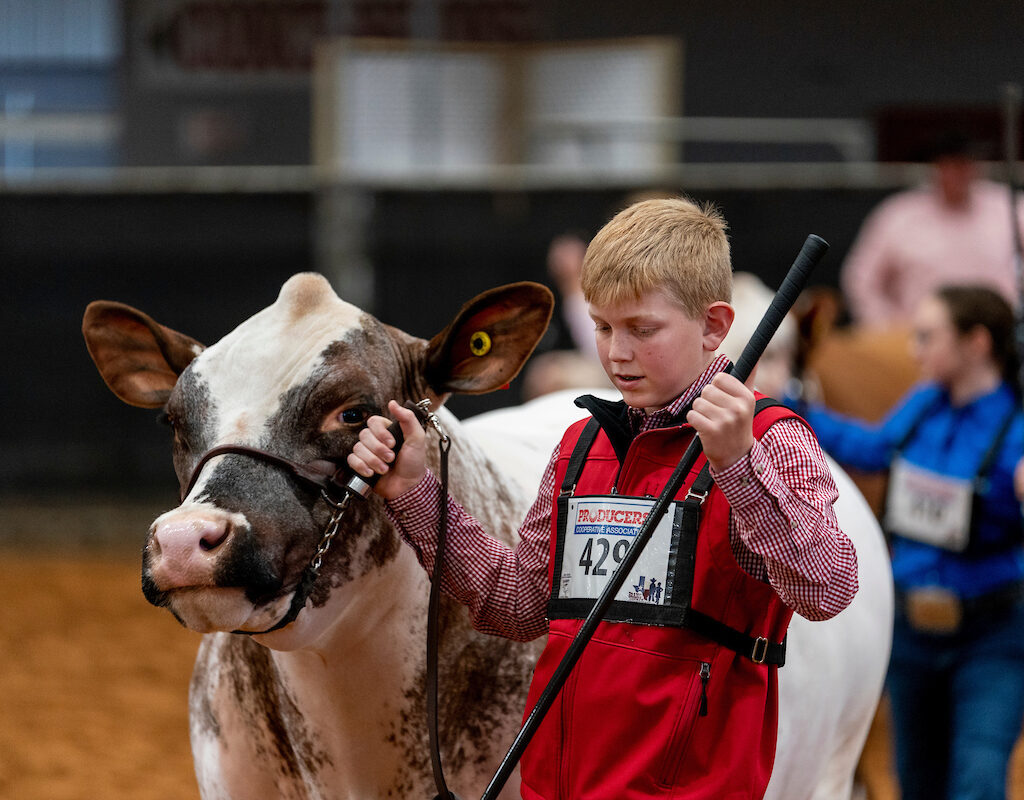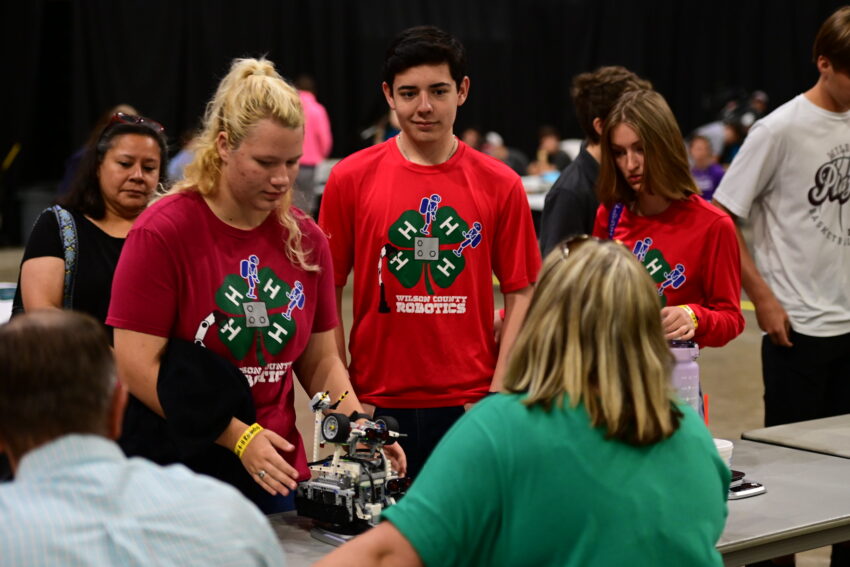Texas 4-H Youth Development
4-H is the nation’s largest youth development program. Through local 4‑H programs, kids and teens learn valuable life skills and participate in project areas like health, science, agriculture and civic engagement. In Texas, the 4-H program is administered by the Texas A&M AgriLife Extension Service and Prairie View A&M Cooperative Extension Service.
>>> Visit the Texas 4-H website here
Related Departments: Agricultural Leadership, Education and Communications, Animal Science, Nutrition, Horticultural Sciences

Texas 4-H Robotics Project

Learn About
Texas 4-H Youth Development
Publications
Programs
All Resources on Texas 4-H Youth Development
- Course
Step Up Scale Down is a 12-week wellness program based on USDA guidelines and scientific research. Each week focuses on a different topic related to nutrition, healthy eating, exercise, and more to support you in your weight loss journey.
- Course
This course is designed for 4-H and FFA members participating in livestock projects. The primary objectives are to enable students to understand the relationship between good character and safe food practices and to apply knowledge regarding the ethical implications of livestock-raising decisions.
- Course
This course is designed for 4-H and FFA members participating in livestock projects. The primary objectives are to enable students to understand the relationship between good character and safe food practices and to apply knowledge regarding the ethical implications of livestock-raising decisions.
- Course
This course is designed for 4-H and FFA members participating in livestock projects. The primary objectives are to enable students to understand the relationship between good character and safe food practices and to apply knowledge regarding the ethical implications of livestock-raising decisions.
- Course
This course provides information for certified child passenger safety technicians who wish to stay current in their technical knowledge. The course, presented in video format, features instructor and LATCH Manual author Denise Donaldson. This course is approved for 1 CEU towards the required 6 CEUS for re-certification.